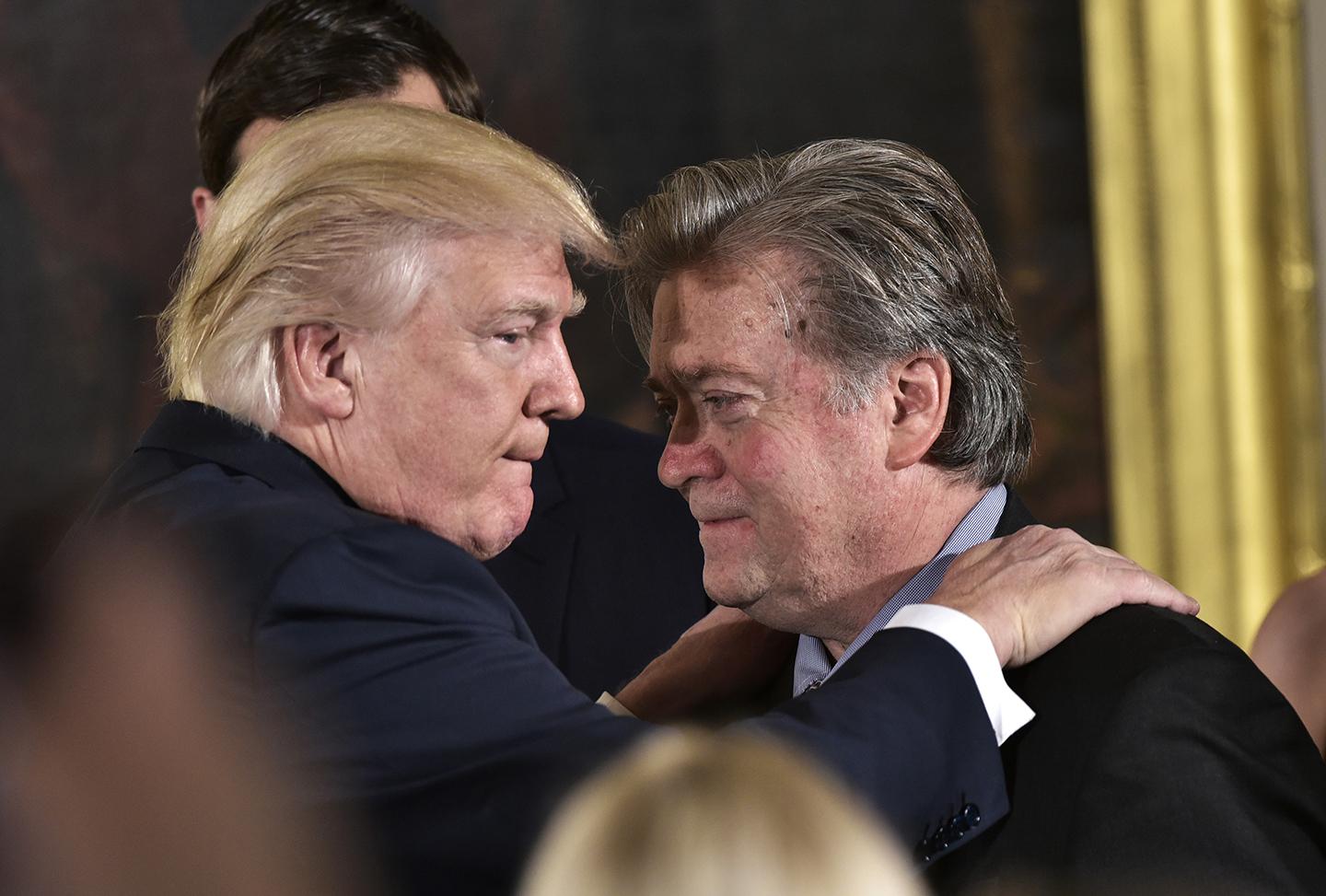UNLIMITED
Steve Bannon's Plan to Make America Great Again

The rally in Dothan, Alabama, opened with prayer, a furious verse from Psalm 5 hurled at enemies of the Lord: “Their heart is filled with malice. Their throat is an open grave.” These messengers of malice were also presumably the enemies of Roy S. Moore, the former chief justice of the Alabama Supreme Court then running for the U.S. Senate as a Republican. Foremost among those enemies was The Washington Post, which had published the accounts of several women accusing Moore of extremely disturbing sexual misconduct. But they also included Senate Majority Leader Mitch McConnell, who’d equivocated in his support of Moore, and Richard C. Shelby, the senior Alabama senator who’d taken his turn as Judas by declaring on national television that he would “absolutely not” vote for the fiery jurist.
Moore is a conservative Christian, and so were many of the supporters who attended that rally on December 11, 2017, just hours before polls opened across the state. The rally freely mixed religion and politics—several radiantly blond siblings came onstage to sing, and a boy definitely not old enough to drive held the microphone and said, “I thank the Lord that Judge Roy Moore has shown us in the past that he will stand up for our beliefs, and he will stand up for Jesus Christ.”
Stephen K. Bannon took the stage more than an hour after the rally began. Unlike many of the other speakers, Bannon did not make a pandering allusion to the University of Alabama football program: He seems to have as much interest in sports as a tweed-clad intellectual.
Bannon also did not talk about homosexuality or abortion, the two issues Moore and his supporters are exceedingly passionate about. Instead, he cast the looming election as a battle between those who believed in the “Trump miracle” and those who want him impeached. He then rhapsodized to the almost entirely white audience about “the Hispanic and black working class,” that would benefit from the Trump administration’s stringent immigration policies.
“Economic nationalism does not care what your race is, your color, your ethnicity, your religion, your gender, your sexual preference,” he said, the last of these added after a slight hesitation. Only one thing mattered: your American citizenship. “American jobs for American workers,” he said, after mentioning the black and Hispanic working class again. The notion of work as a redemptive force is central to Bannon’s thinking, as well as to his own habits. As far as I can tell, Bannon doesn’t do much but work. Whether that fact is thrilling or terrifying depends on what you think of the work he does.
Twenty-four hours later, I sat with Bannon in a hotel room on the outskirts of Montgomery. We had both spent the evening at the RSA Activity Center downtown, where the Moore campaign had its headquarters. It was a campaign coasting on confidence. When I’d run into Moore adviser Dean Young earlier in the evening, he was certain that victory was assured. So were the hundreds gathered in the downtown Montgomery ballroom. The blond siblings sang again. The speakers who’d praised Moore as a man of God the night before did it all over again. Then the returns started to come in. Older people prayed.
You’re reading a preview, subscribe to read more.
Start your free 30 days





